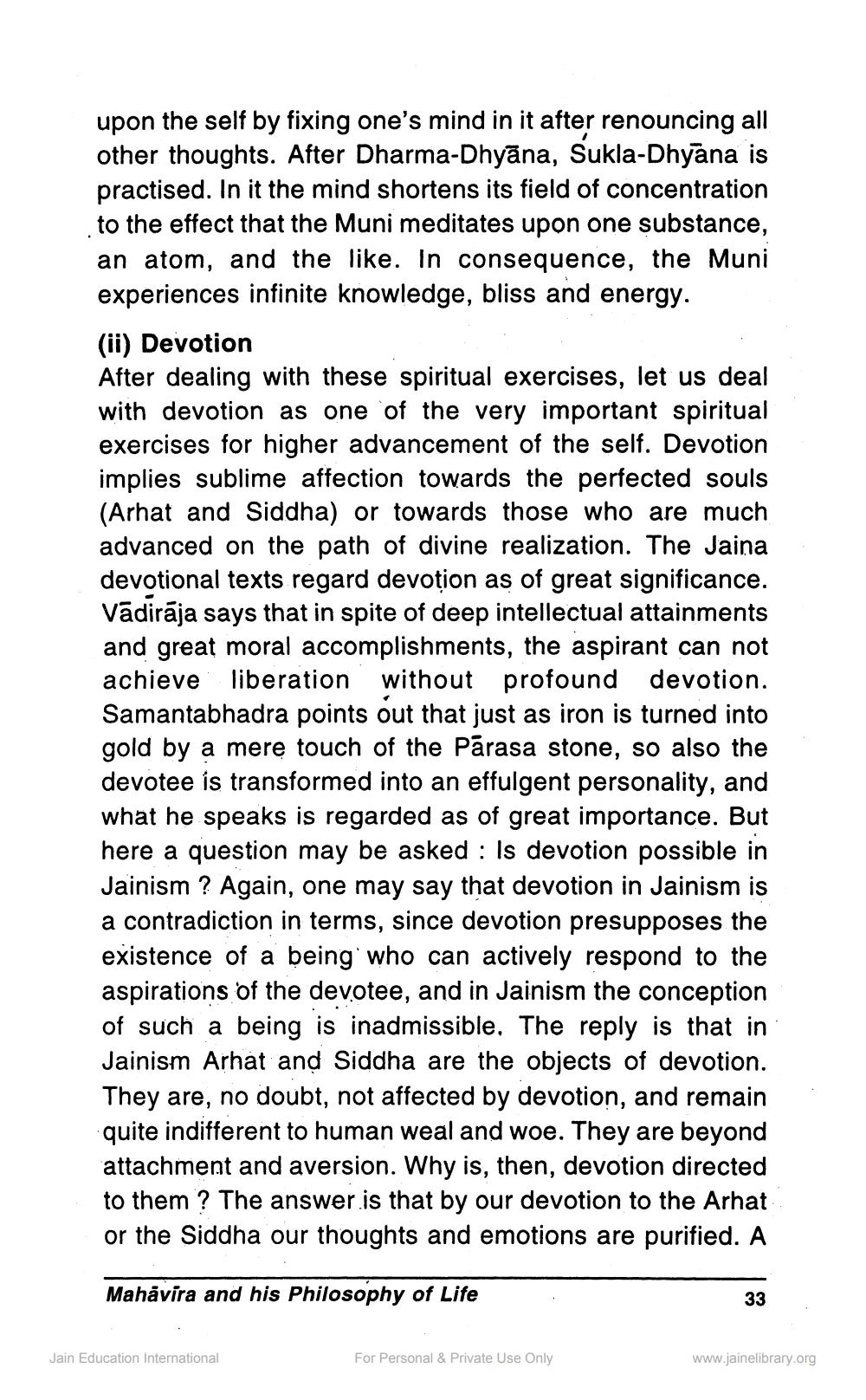________________
upon the self by fixing one's mind in it after renouncing all other thoughts. After Dharma-Dhyāna, Sukla-Dhyana is practised. In it the mind shortens its field of concentration to the effect that the Muni meditates upon one substance, an atom, and the like. In consequence, the Muni experiences infinite knowledge, bliss and energy. (ii) Devotion After dealing with these spiritual exercises, let us deal with devotion as one of the very important spiritual exercises for higher advancement of the self. Devotion implies sublime affection towards the perfected souls (Arhat and Siddha) or towards those who are much advanced on the path of divine realization. The Jaina devotional texts regard devotion as of great significance. Vādirāja says that in spite of deep intellectual attainments and great moral accomplishments, the aspirant can not achieve liberation without profound devotion. Samantabhadra points out that just as iron is turned into gold by a mere touch of the Pārasa stone, so also the devotee is transformed into an effulgent personality, and what he speaks is regarded as of great importance. But here a question may be asked : Is devotion possible in Jainism ? Again, one may say that devotion in Jainism is a contradiction in terms, since devotion presupposes the existence of a being who can actively respond to the aspirations of the devotee, and in Jainism the conception of such a being is inadmissible. The reply is that in Jainism Arhat and Siddha are the objects of devotion. They are, no doubt, not affected by devotion, and remain quite indifferent to human weal and woe. They are beyond attachment and aversion. Why is, then, devotion directed to them? The answer is that by our devotion to the Arhat or the Siddha our thoughts and emotions are purified. A
Mahavira and his Philosophy of Life
33
Jain Education International
For Personal & Private Use Only
www.jainelibrary.org




